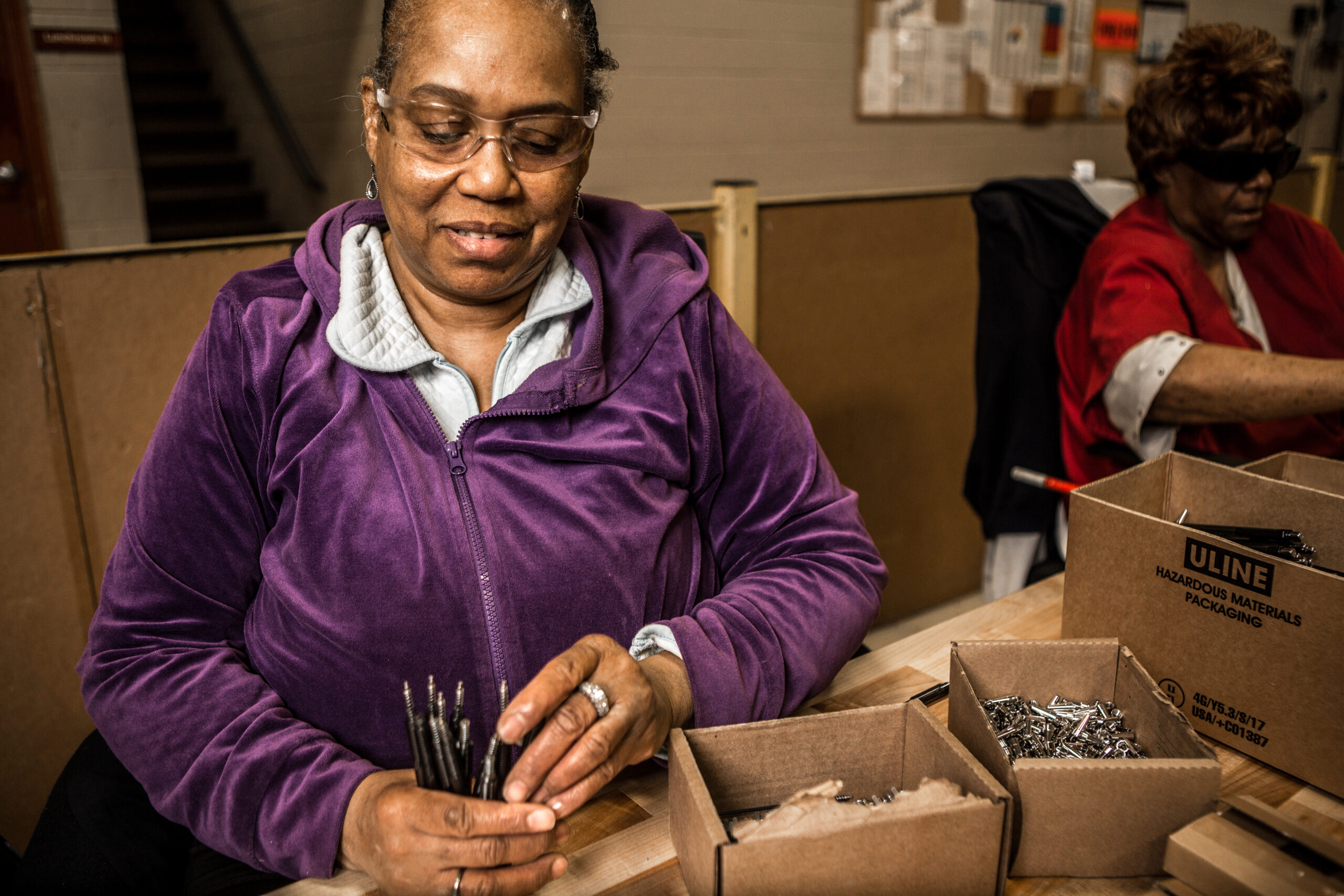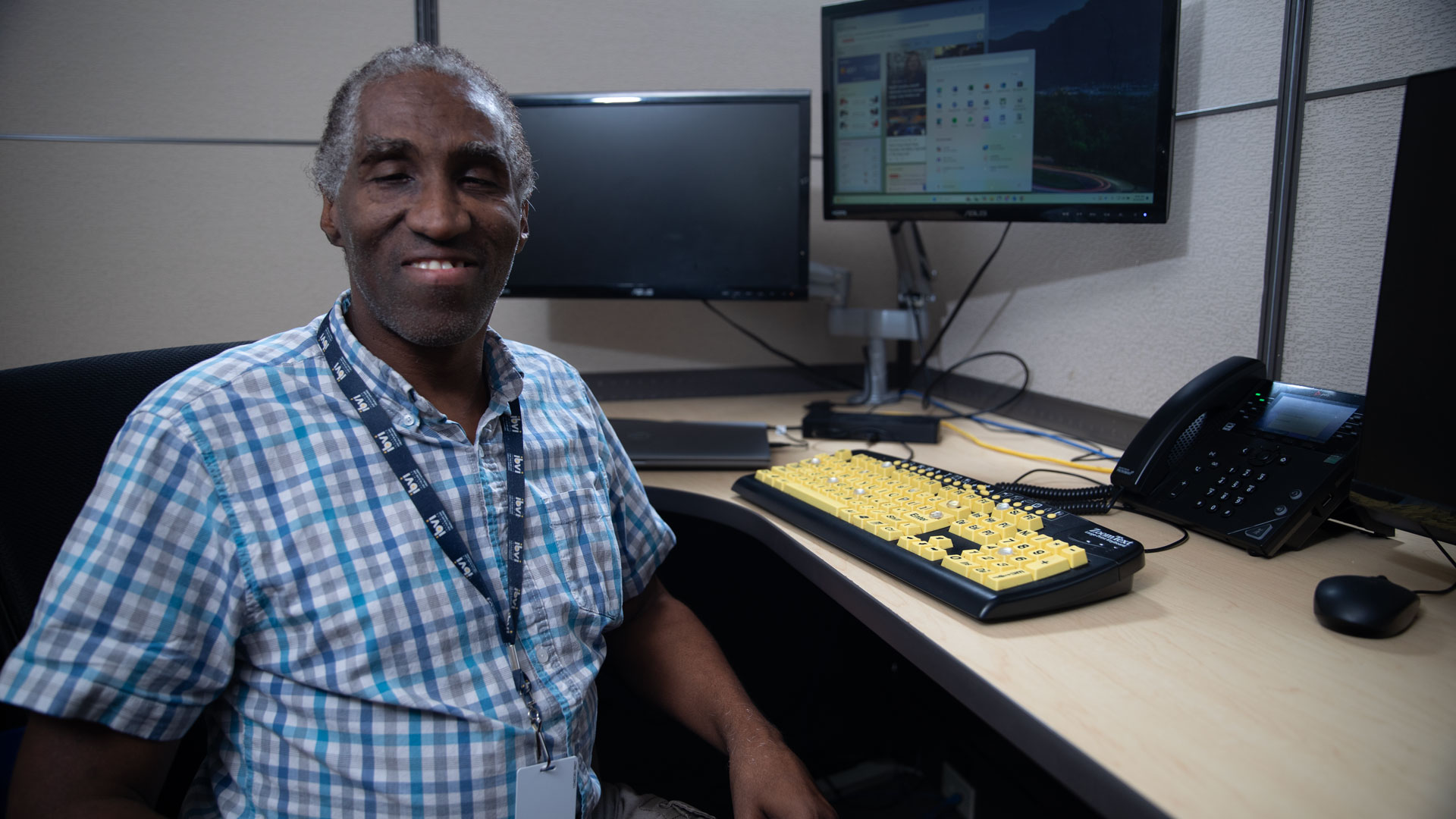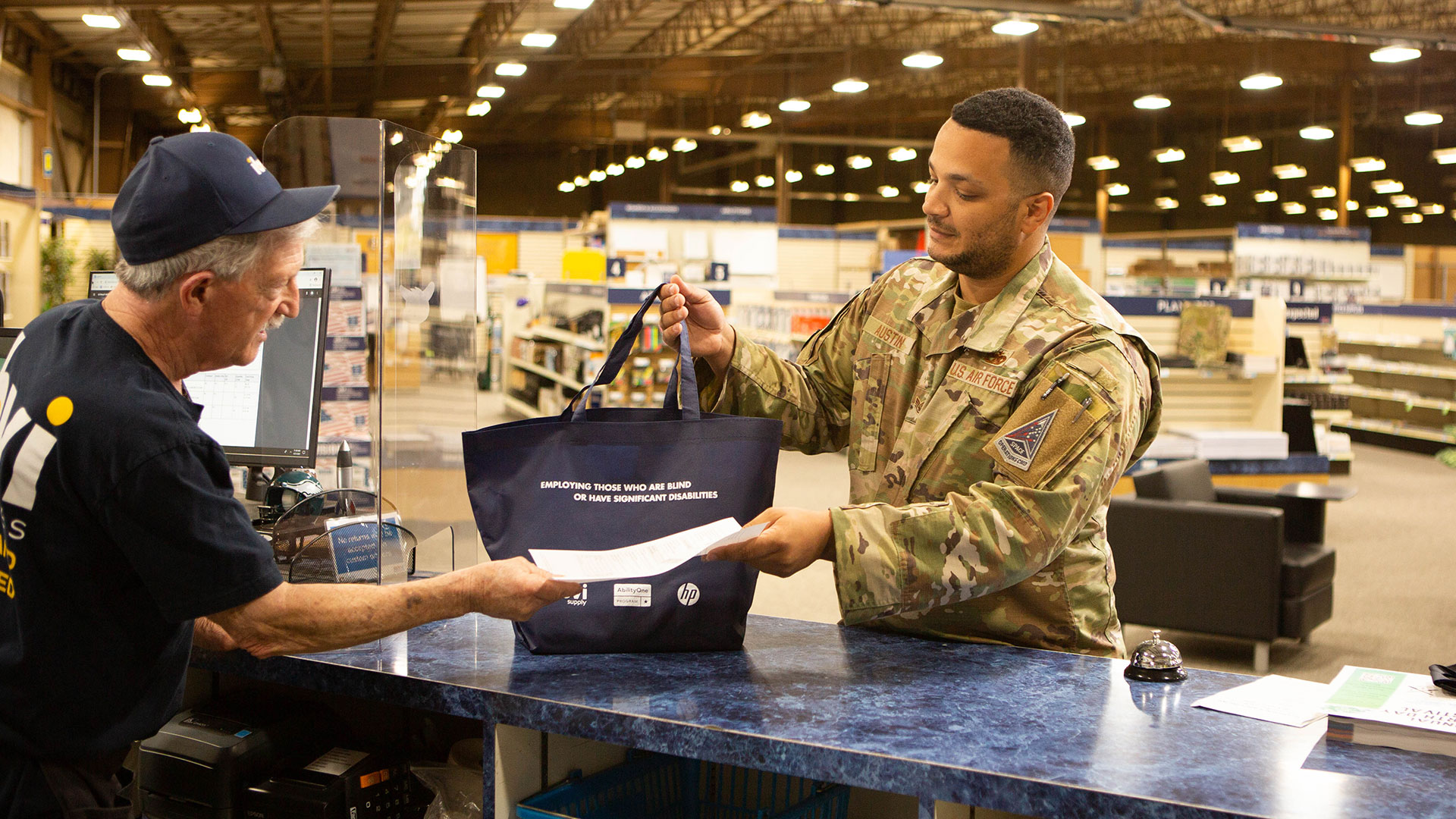Each October during National Disability Employment Awareness Month (NDEAM), IBVI makes an extra effort to spark conversations, share thoughts and ideas, and build awareness for disability employment, turning additional attention toward workers who are blind or visually impaired. Over the years, we’ve celebrated NDEAM by raising awareness at Base Supply Centers (BCSs), organizing Q&As about gainful employment, and by amplifying the voices of some of our highly skilled employees.
This year the Office of Disability Employment Policy (of the U.S. Department of Labor) has chosen “Advancing Access and Equity” as the theme for NDEAM 2023. To kick off this year’s awareness campaign, we’ve pulled together some ideas on how everyone can advocate for employing people with disabilities, how to make the workplace more accessible and how important it is to have an attitude of inclusion.
NDEAM origins and history
According to The Library of Congress, the first efforts to educate the U.S. public about issues related to disability and employment began in 1945, when Congress enacted Public Law 176, declaring the first week of October each year as National Employ the Physically Handicapped Week. In 1962, the word “physically” was removed to acknowledge the employment needs and contributions of individuals with all types of disabilities. Some 25 years later, Congress expanded the week to a month and changed the name to National Disability Employment Awareness Month.
This year is a very special celebration of NDEAM, as this year marks the 50th anniversary of the passing of The Rehabilitation Act of 1973, prohibiting discrimination based on disability in employment by federal agencies, federal contractors and recipients of federal funds, and in the delivery of federally funded programs and activities. This paramount legislation is in essence the moral backbone of Industries for the Blind and Visually Impaired’s mission to employ people who are blind or visually impaired and continues to empower the disabled workforce nationwide.
Addressing misconceptions
One of the leading contributors to the staggering unemployment rate for people with disabilities has nothing to do with the workers and everything to do with organizations and their employers. A lack of knowledge and understanding of what it means to employ blind or visually impaired workers has created a faux barricade to hiring members of this highly skilled and dedicated workforce.
While it is true that there are accommodations that need to be made in order to aid blind or visually impaired workers in some of the processes of their job, we’d like to challenge the idea of accommodations and pose the question: Doesn’t a good organization make accommodations for all of their employees to fit their specific job needs? No matter the job, everyone has their own methods of doing things as well as their own methods of learning or improving.
We encourage our business partners to look for more opportunities to hire blind and visually impaired employees. If someone is perfectly qualified for a job and would be a great cultural fit with a company, being visually impaired should not prevent that person from getting that job. There’s a giant misconception that accommodations for an employee who is blind require too much investment of money, time and training, when in reality, they are more accessible than ever.
For example, many of our IBVI employees who are blind or visually impaired use a software called JAWS – the world’s most popular screen reader, developed for computer users whose vision loss prevents them from seeing a computer screen. JAWS can be downloaded on a PC for free, while other newer and advanced technologies like the Orcam can vary in price but generally cost a few thousand dollars. Every employee is different, which means working conditions and accommodations will be different. Instead of making an uninformed decision, we encourage employers to ask what a potential employee needs, and then do the research to see if those accommodations can be met.
To employers (and specifically managers) who are still hesitant, we’d like to pose the question: Does your organization apply a ‘one size fits all’ mentality when it comes to problem solving in other situations? Likely (and hopefully) the answer is no. Everyone deserves a chance to prove themselves as a valuable member of an organization, and it’s the organization’s responsibility to create an environment where ALL of their current or future employees can thrive.
“As of 2022, the labor force participation rate for persons with a disability was just 37.8% and part of the reason for that low number is because companies simply don’t consider hiring people with disabilities or who are blind,” said IBVI President and CEO, CJ Lange. “I’m hopeful that’s something we can change. It’s our goal to continue informing organizations who historically haven’t hired people that are blind or visually impaired that it’s not difficult or expensive to make accommodations, and that they’re missing out on a highly skilled population of blind professionals.”
Filling a wide variety of roles
Another misconception about blind or visually impaired employees is that there are only a handful of roles that they’re capable of working. “A lot of times employers have the false impression that people that are blind can only do assembly type work,” said CJ Lange. “With the technology that’s out there, the reality is that there are endless job possibilities for blind employees. At IBVI our visually impaired employees work the assembly line and beyond, excelling in office work, customer service, e-commerce and project management positions.”
“Saying yes instead of no”
At IBVI it’s incredibly important to us that we empower our employees, lift their voices, and continue to create new opportunities and resources to encourage career growth. Thanks to our new Employee Spotlight blog series that we started this year, we’ve already gained insightful perspectives from a couple of our incredible employees. One of the best takeaways from the blog series came from customer service representative, Lucas Rice, who said “More businesses, organizations, and groups need to step up and simply make an effort at accommodating the needs of people who are blind — saying yes instead of no.”
This October we encourage everyone to start a conversation about disability employment at their workplace. Say yes to advancing access and equity for members of the disabled workforce.


